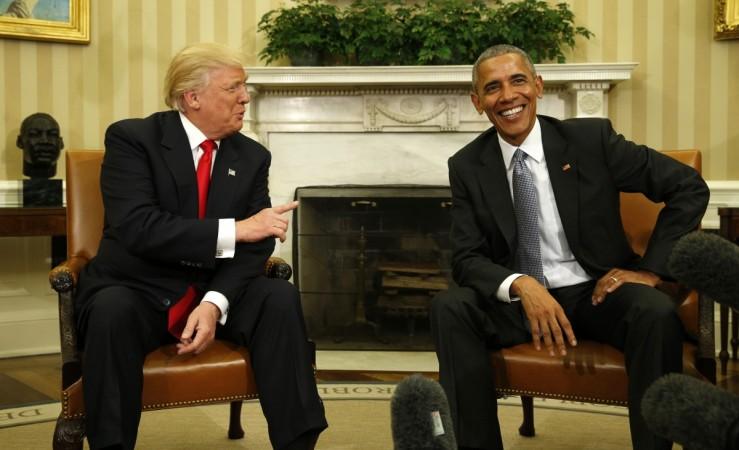
United States President Barack Obama says he would have defeated Donald Trump in the 2016 presidential elections if he had run for the top position again.
Obama, during an interview, also criticised Democratic Party's nominee Hillary Clinton stating that her campaign acted too cautiously out of a belief that their victory was certain and that they did not size up their opponent better.
"If you think you're winning, then you have a tendency, just like in sports, maybe to play it safer," Obama said in an interview with former adviser and long-time friend David Axelrod, a CNN analyst, for his 'The Axe Files' podcast.
The US President also said that Clinton "understandably . . . looked and said, well, given my opponent and the things he's saying and what he's doing, we should focus on that."
US President-elect Trump later refuted Obama's declaration and tweeted, "President Obama said that he thinks he would have won against me. He should say that but I say NO WAY! - jobs leaving, ISIS, OCare, etc."
Although Obama criticised Clinton's approach towards the election, the US President also said that he admired the Democrat and that she had been a victim of unfair attacks. He also added that Clinton's defeat does not reflect a rejection of Obama's eight years of presidency in the states. He said that, during his term, he had put together a team which stretched across the nation. However, the Clinton campaign did not follow through with his example.
I am confident in this vision because I'm confident that if I - if I had run again and articulated it - I think I could've mobilised a majority of the American people to rally behind it. See, I think the issue was less that Democrats have somehow abandoned the white working class, I think that's nonsense. Look, the Affordable Care Act benefits a huge number of Trump voters," Obama said.
"There are a lot of folks in places like West Virginia or Kentucky who didn't vote for Hillary, didn't vote for me, but are being helped by this . . . The problem is, is that we're not there on the ground communicating not only the dry policy aspects of this, but that we care about these communities, that we're bleeding for these communities," he added.














